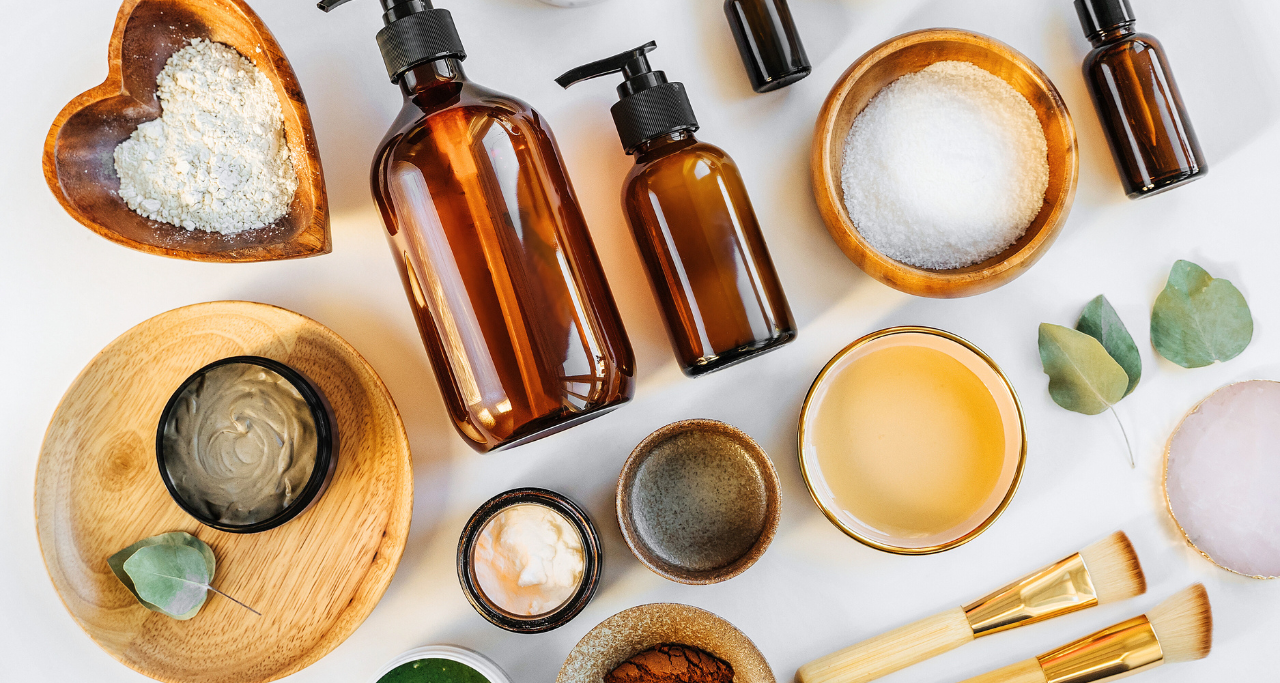Recognizing real natural cosmetics: The best organic and natural cosmetics
There are many cosmetics and care products available, but which ones actually contain natural ingredients? More and more people prefer to use natural care products to protect their skin and the environment. However, with such a wide range of organic products on offer, it is easy to lose track. We explain: What distinguishes good natural cosmetics? And what advantages do they offer over conventional products?

What are natural cosmetics?
Natural cosmetics are products that are sustainably manufactured and contain natural ingredients such as plant oils, plant extracts, essential oils, or natural preservatives such as vitamin E. Synthetic fragrances and dyes as well as petrochemical ingredients are taboo. The formulas are based on high-quality, natural raw materials that are designed to provide optimal care and protection for the skin and hair.
How can I recognize good natural cosmetics?
The term “natural cosmetics” is not legally protected. As the trend toward sustainability becomes increasingly popular, many labels on the market now describe themselves as natural cosmetics. To recognize the right natural cosmetics, there are a few points to consider.
- Look for recognized seals
Genuine certifications, such as Cosmos, Ecocert, NATRUE, or BDIH seals, guarantee that the products are subject to strict criteria and are made from natural raw materials. - Check the ingredients
A look at the INCI list (International Nomenclature of Cosmetic Ingredients), usually found on the back of the packaging, shows which substances are contained in the product. The higher up an ingredient is listed, the higher its proportion.
APO24 tip: Apps such as Code Check or Cosmile allow you to easily scan and evaluate ingredients. - These substances must not be contained in natural cosmetics:
Parabens, artificial preservatives, silicones, microplastics, palm oil, paraffin, PEG, and synthetic ingredients (fragrances and artificial colors).
Many labels also place value on organic quality and reusable packaging to ensure sustainability. But be careful - not all natural cosmetics are automatically organic cosmetics!
Are natural cosmetics the same as organic cosmetics?
If natural cosmetics are also certified organic, this means that a certain percentage of the ingredients come from organic farming. The proportion varies depending on the verification; for the NATURE seal, for example, it is at least 70%. To be labeled as organic cosmetics, at least 95% of the ingredients must be plant-based and at least 10% of these must come from organic cultivation. These are often marked with an Ecocert certification or BDIH seal.
Both natural and organic cosmetics rely on natural ingredients and do not use chemicals. To be certified as organic cosmetics, a certain percentage of the ingredients must also be organically grown.
Good to know: Natural cosmetics have to be expensive? That's a myth! Prices can vary from cheap to expensive. However, expensive natural cosmetics are not necessarily the best. There are now affordable and good alternatives available from drugstores, such as Weleda, N.A.E. Santé, or own brands such as Alverde and Lavera.
Advantages of natural cosmetics
Why is it worth using natural cosmetics? These products are particularly suitable for sensitive skin, as they contain no synthetic substances and are therefore less irritating to the skin. Cosmetic products without parabens, silicones, microplastics, and artificial preservatives also have a positive impact on the environment. In addition, some brands focus on vegan and cruelty-free cosmetics.
With a little knowledge, it is easy to recognize genuine natural cosmetics. Look for recognized seals of approval, transparent ingredients, and sustainable packaging. If in doubt, seek advice from a dermatologist or pharmacist.On APO24 you will find the opening hours and on-call services of Austrian pharmacies in your area.
Your APO24-Team